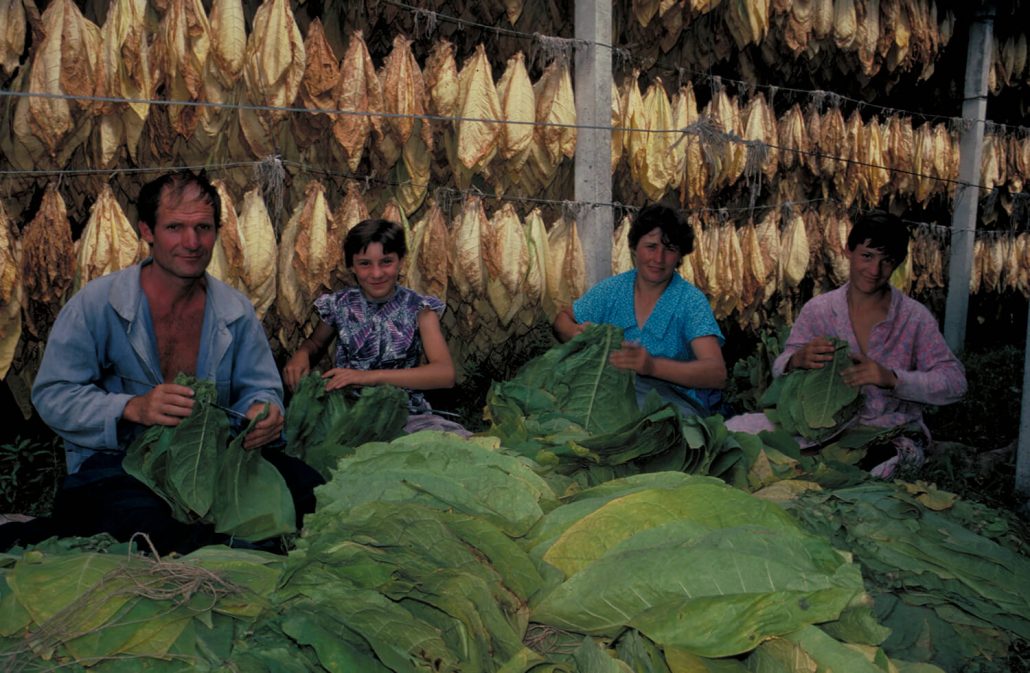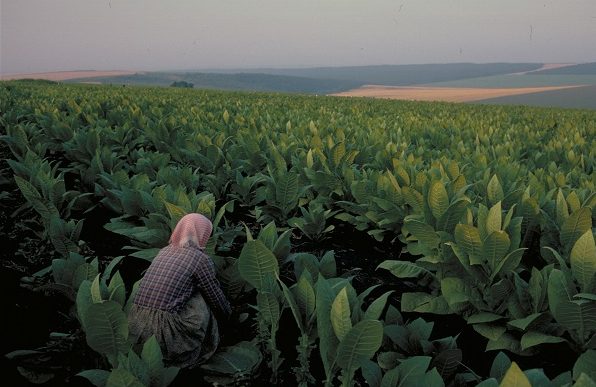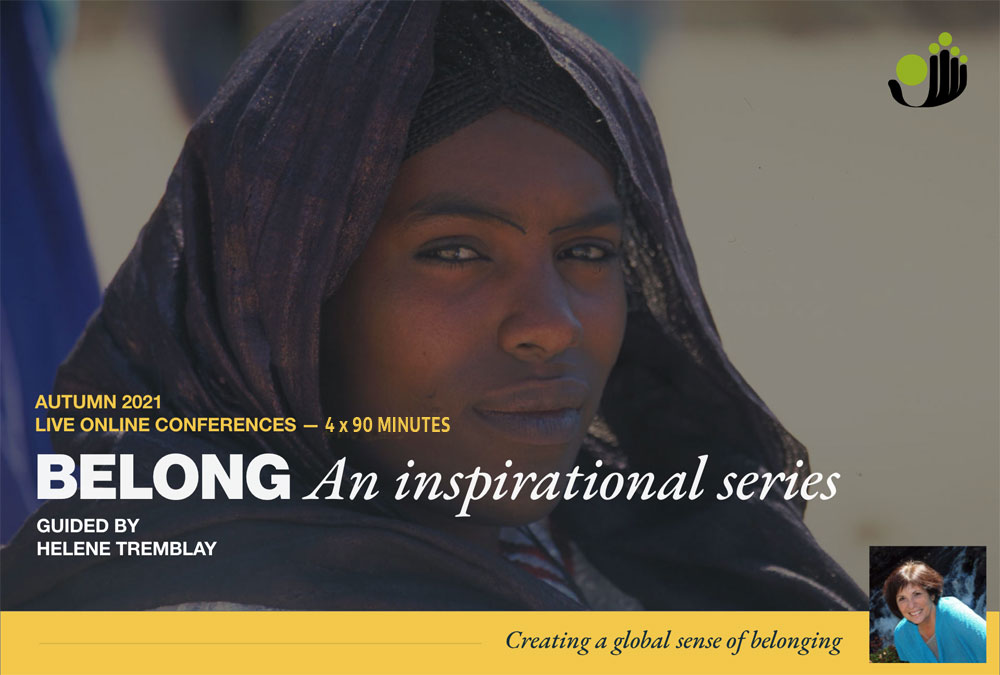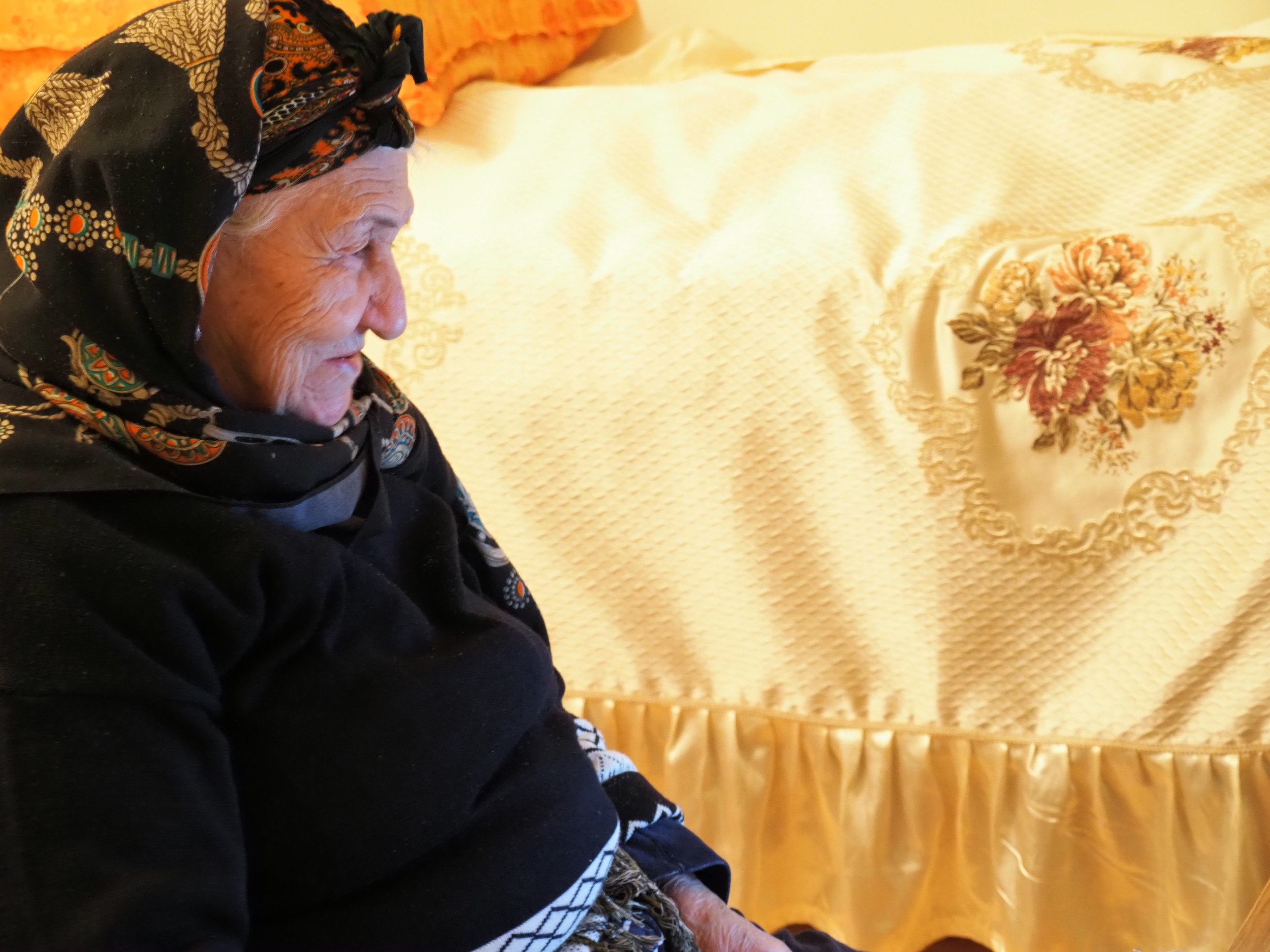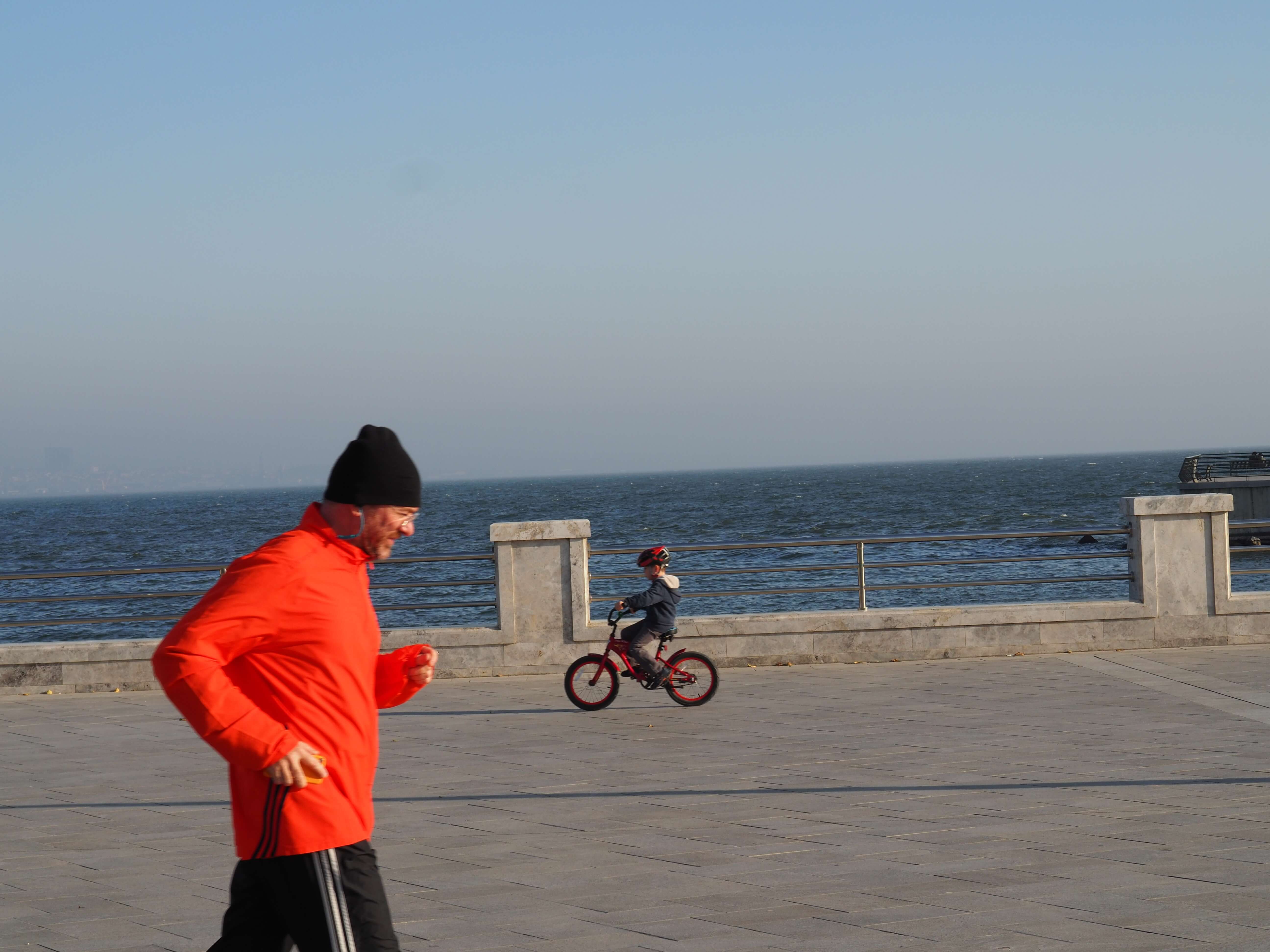Picking Tobacco in Moldova
The earlier they reach the tobacco fields the more tobacco will be picked and the more money they will earn for their family. Three quarters of the Leka family’s income will be earned during the next two months. Eugenia does not make it onto the first bus this morning, as she usually does. She waits, knowing she will have to work faster in order to come home with her usual harvest of 450 kilos. The harvest chief walks beside his jeep parked in the middle of the square watching to make sure all workers are picked up. A second bus takes Eugenia and the children for a twenty minute bumpy ride, backfiring as it climbs the small hills overlooking the Nistru river. They are dropped off at the edge of a tobacco plantation where a few man wait to give them orders for the day. Ninety-five percent of the tobacco pikers are women. The supervisors are all men. “It would be impossible to work if we were supervised by women,” says Eugenia adding “We would fight.” Each family group gathers in front of the rows they have been assigned, unroll the bags and put on their working clothes. Eugenia moves through the plants like a thief, quickly pulling the leaves of two rows at a time. Behind her, is 15 year old Andrei, a slower version of his mother and behind him comes Mariana, picking one row at the time. At 12 year old Mariana is tiny, and she does not have the strength to pull the leave as fast as the others. Mariana repeats the movements her mother, grandmother and great grandmother did at her age. Tobacco is a traditional crop in the region and as guaranteed the peasants and income long before the farms where collectivized. Eugenia’s father remembers when the Russians came with their communist ideas, sending – small scale landowners with a few farmers working for them – to the gulags of Siberia or to death. He remembers how they came to his house and intimidated his father into handing over the papers to his few hectares. But he does not criticize the old system. Even though saying terrible things happened, at least he succeeded in giving his children a roof over their heads and to feed them well. “ Today, when I look back and think of how things used to be, it looks good”, he says. “Now there are only four of us still at home and we can hardly manage.”
